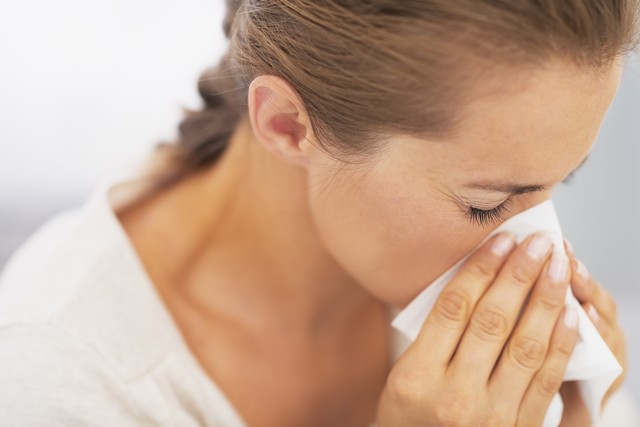
by Eric Brown | Jan 31, 2019 | 37 Symptoms Associated With Mold Illness, Attic Mold, Basement Mold, black mold removal Atlanta, black mold removal Georgia, Can Black Mold Poison You?, Can Mold Kill?, Chronic Inflammatory Response Syndrome (CIRS), Commercial Mold Remediation, Commercial Mold Removal, Crawlspace Mold, Dead Mold Spores, Health, Homeowner Tips, How Toxic Is Mold?, Indoor Air Quality, Killing Mold, Mold Facts, Mold Information, Mold Inspection, Mold Remediation, Mold Removal, Mold Removal Alpharetta GA, Mold Removal Atlanta GA, Questions and Answers, Stachybotrys Black Mold, Toxic Mold
Is Mold Making Me Sick?
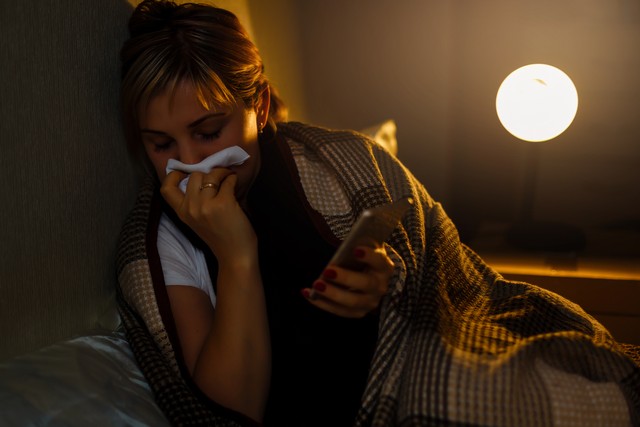
Is Mold Making Me Sick?
Mold B Gone has been serving residents in the Atlanta area for more than a decade. We are experts at mold testing and mold removal, using our proven system to ensure that the indoor ecology of our clients’ properties are healthy.
We are particularly proud to offer specialized mold removal services to individuals that are mold sensitized.
The main purpose of this article is to explain why some people are more susceptible to mold illness and require specialized mold removal services to recover!
What Does Mold Sensitized Mean?
In March of 2015, Wonder Makers Environmental, based in Michigan, launched www.moldsensitized.com with the goal of educating consumers, contractors, and health professionals on the health concerns caused by mold. The website’s goal is to be the ultimate resource of mold information and contains many articles written by the CEO, Michael Pinto.
Since launching the website, many mold sensitized individuals have been interviewed. Five key lessons can be learned from these interviews.
- There is a lack of appreciation in the medical community of the impact mold can have on certain individuals.
- Symptoms from mold sickness are broad, leading to multiple mis-diagnosis of patients by many doctors.
- Mold sensitized individuals seek help from multiple medical practitioners because their illnesses continue.
- The mold sensitized individual eventually learns that mold has been the cause of their sickness.
- Because traditional remediation approaches do not adequately address their sensitivities, mold sensitized individuals often are forced to seek alternative shelters.
According to experts featured on the MOLDY documentary, 28 percent of the population have genes that make them highly susceptible to mold-related illness. Putting this into perspective, and based on the population of the metro Atlanta area, there are approximately 1.5 residents susceptible to mold sickness.
According to Dr. Richie Shoemaker, a physician and expert in the field of biotoxin-related illness and author of the book Surviving Mold, the most common condition associated with mold illness is Chronic Inflammatory Syndrome.
What Is Chronic Inflammatory Syndrome?

What Is Chronic Inflammatory Syndrome?
Chronic Inflammatory Response Syndrome (CIRS), also known as Sick Building Syndrome (SBS), is a combination of illnesses or aliments that are in direct relation with an individual’s place of work or home environment:
An acute and chronic, systemic inflammatory response syndrome acquired following exposure to the interior environment of a water-damaged building with resident toxigenic organisms, including, but not limited to fungi, bacteria, actinomycetes and mycobacteria as well as inflammagens such as endotoxins, beta glucans, hemolysins, proteinases, mannans, c-type lectins and possibly spirocyclic drimanes, plus volatile ogranic compounds.
The term Sick Building Syndrome was first coined by the World Health Organization in the 1980s and it is believed that it is caused by poor air quality caused by water damage.
According to Shoemaker:
This illness happens after exposure to the interior environment of a Water-Damaged Building (WDB). There are many ways buildings become home to a toxic mix of microbes, fragments of microbes, and harmful chemicals. Buildings can host fungi, bacteria, mycobacteria, and actinomycetes as a result of construction defects like inappropriate ventilation; faulty construction of crawl spaces or inadequate building design; flat roofs or fake stucco cladding without adequate caulking; incomplete basements exposed to saturated ground water conditions; or not correcting water leaks.
According to Shoemaker, 25% of the population has a genetic pre-disposition to CIRS; women tend to report more symptoms than men:
Genes made them prime targets for an assault by their own innate immune systems….exposure to the interior environment of a Water-Damaged Building (WDB), [causes] an innate immune response that is going haywire.
Individuals exposed to the toxins in a water damaged building suffer from chronic illness because their bodies are trying to eliminate the foreign substances that stay in the body resulting in chronic inflammation and multiple symptoms. In fact, one of the reasons that it is so difficult to diagnose CIRS is due to the fact that there are 37 symptoms: fatigue; weakness; aches; muscle cramps; unusual pain; ice pick pain; headache; light sensitivity; red eyes; blurred vision; tearing; sinus problems; cough; shortness of breath; abdominal pain; diarrhea; joint pain; morning stiffness; memory issues; focus/concentration issues; word recollection issues; decreased learning of new knowledge; confusion; disorientation; skin sensitivity; mood swings; appetite swings; sweats (especially night sweats); temperature regulation or dysregulation problems; excessive thirst; increased urination; static shocks; numbness; tingling; vertigo; metallic taste; and tremors.
Because of the large number of symptoms and different combinations that a patient can have, CIRS is difficult to diagnose.
Suspect Mold Is Making You Sick? Here Are Some Recommendations!

Suspect Mold Is Making You Sick? Here Are Some Recommendations!
If you have been suffering from ill-health for an extended period of time and the treatments that you are prescribed do not seem to help, then here are some recommended action steps.
- Listen to your body. If you are feeling sick and despite under-going multiple treatments still continue to feel sick, then do not give up on trying to find out what the cause is.
- Research mold sickness. The website, www.moldsensitized.com, has a significant amount of information on mold and it’s impact on health and is constantly updating the site with new information on its blog. In particular, you may want to read these articles: Medical Evidence that Connects Mold Exposure to Illness Keeps Piling Up;
Do People Really Get Sick From a Little Mold in Their House?;
What is Stachybotrys Mold?;
The Mystery of Mycotoxins in Mold Contamination;
The WHO on Mold;
TOP 10 Questions and Answers About Water-Damaged Buildings;
- Review the experiences of mold survivors to gain greater insight into mold sickness. One of the primary reasons you want to do this is so that you will have some further evidence that you can take to your preferred medical practitioner.
- Continue to educate yourself. Because of the lack of knowledge in the mainstream medical community, you need to take a lead role in determining whether mold is making you sick.
- Finally, if after all your research, you think that mold is the problem, then verify the existence of mold in your home by investing in a mold inspection and air quality test.
What Should I Do If I Am Diagnosed With Mold Sickness?

What Should I Do If I Am Diagnosed With Mold Sickness?
If you suspect that you are sick because of mold, then the next step is to find a Doctor that has knowledge about mold sickness. To find listings of environmental doctors throughout the world, click here.
Two Steps To Recovery!
Once you are diagnosed, there are two distinct steps to your recovery.
Seek Medical Treatment
Medical treatment is designed to detox your body and allow your immune system to recover and begin to regain its strength. The detox strategy will be prescribed by your physician who will likely recommend that you remove yourself from the property that has been making you sick until it is safe to occupy again.
Remediate Your Home
The process of removing mold from your home and ensuring that you can move back in without experiencing further sickness is the long term solution to health recovery.
In the past, mold sensitized individuals were forced to abandon their primary residences even after remediation because contractors did not understand the Big Picture of how the remediation and cleaning activities have to be coordinated with the medical and building maintenance aspects of the project.
If you want to invest into mold remediation, we recommend that you hire Mold B Gone because we have invested in the remediation for sensitized individuals training. Our team graduated from this course. In addition, Mold B Gone specializes in whole house and room sanitizing to reduce the amount of bacteria and pathogens in your home allowing you to breath easier and healthier.
Five Key Benefits Offered To Mold Sensitized Individuals By Mold B Gone!
Mold B Gone offers mold sensitized individuals these five key benefits:
- Commitment to completing the job correctly the first time, with the understanding that our goal is provide you with a safe place to live or work because our team knows that our work practices can impact your health.
- Clear understanding that the environmental portion of projects with sensitized individuals has many facets (i.e., source removal, content cleaning, HVAC decontamination, whole structure cleaning, building performance improvements, etc.) and will provide services only in those areas where they are qualified.
- Clear understanding that your project requires procedures that are more protective than the current standard of care for the mold remediation industry.
- Commitment to specific project endpoints that have been designed for sensitized individuals (endpoints that incorporate the latest health/science data).
- Long term cost savings, peace of mind, and less anxiety because we will be familiar with situations like yours and the most effective techniques for this stringent remediation.
Got Mold Questions?
Mold B Gone is here to help and committed to serving mold sensitized individuals. If you suspect that mold is making you sick, call us, 470-545-4467 or contact us via e-mail for further assistance. Our goal is to help you live a healthier and happy life. Most importantly, we truly empathize with your situation and are committed to helping you and guarantee our services.
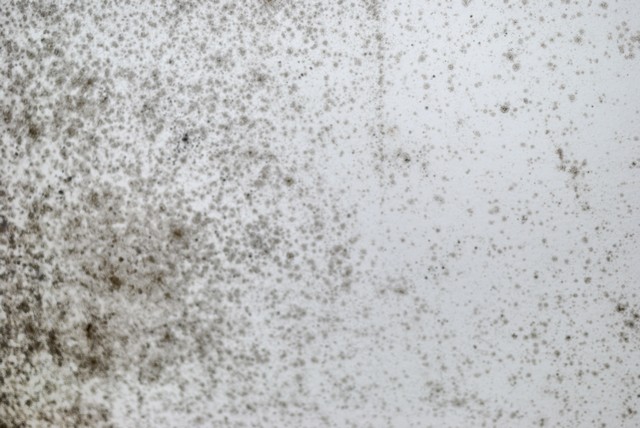
by Eric Brown | Aug 29, 2018 | 37 Symptoms Associated With Mold Illness, black mold removal Atlanta, black mold removal Georgia, Can Black Mold Poison You?, Can Mold Kill?, Commercial Mold Remediation, Commercial Mold Removal, Crawlspace Mold, Health, How Toxic Is Mold?, Indoor Air Quality, Mold Information, Mold Inspection, Mold Remediation, Mold Removal, Mold Removal Alpharetta GA, Mold Removal Atlanta GA, Stachybotrys Black Mold, Toxic Mold
Is Black Mold Dangerous?
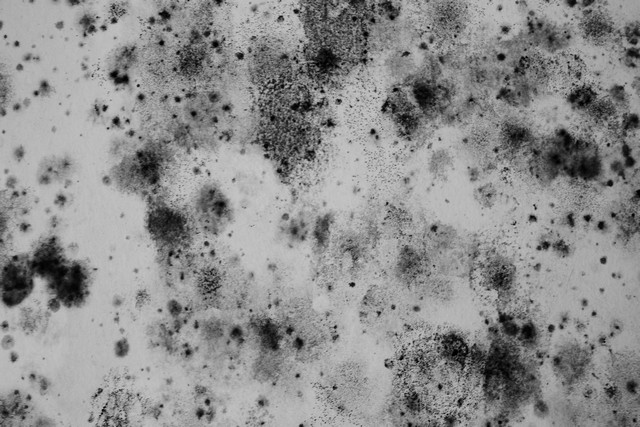
Is Black Mold Dangerous?
Mold B Gone are mold inspection and mold removal experts serving the Atlanta, Georgia area. We have helped 1000s of consumers and business owners with their mold issues using our 8 step mold removal process and eco-friendly chemicals that prevent future mold growth. We are so confident in our mold removal system that we guarantee our work!
One of our goals is to educate consumers about mold through our blog. We are often called by people who are concerned that they may have black mold growing in their homes or businesses. Please don’t panic! We are here to help and are just a phone call away, 470-545-4467!
One of the most common questions we encounter pertains to black mold. The purpose of this article is to explain what black mold is, why it grows, and the potential health consequences of exposure.
What Is Black Mold?
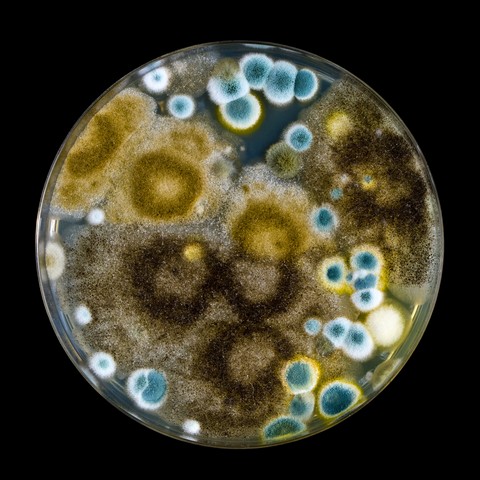
What Is Black Mold?
Stachybotrys molds decay organic matter. The most common species, Stachybotrys chartarum, sometimes referred to as Stachybotrys atra often grows indoors.
Ideal conditions for Stachybotrys growth include moisture, a nutrient/food source, temperature, and time. Ideal humidity for this black mold is a relative humidity of 90% or higher for it to begin the germination growth process. Stachybotrys feeds on materials with a high cellulose content such as hay, straw, wood chips, and building materials such as ceiling tile, drywall, paper vapor barriers, wallpaper, insulation backing, cardboard boxes, and paper files.
Stachybotrys is considered the King of Molds because it will develop into the dominant mold group if the conditions are favorable and will crowd out the other molds that began feeding on the material first.
This happens because unlike other molds like Aspergillus, Penicillium, and Cladosporium which begin growing within one to two days, Stachybotrys takes one to two weeks to begin growing.
Don’t Disturb Black Mold!

Don’t Disturb Black Mold!
When Stachybotrys mold is growing on wet material, the spores do not disperse as easily because the spores are held together by a sticky/slimy coating. However, when the material dries out or is disturbed, the spores will spread through the air.
The main concern of a mold remediation contractor is to prevent the spread of toxic black mold. The most effective method of doing this is through containment, which is the process of creating a poly barrier around the area where the Stachybotrys mold is growing.
This procedure is so important because Stachybotrys spreads by releasing spores. Mold contaminated materials must be removed and disposed of because this mold does not just grow on the surface of the material; it has root-like tendrils called mycelia, meaning it is able to penetrate the surface.
Typically Stachybotry mold grows in clusters at the end of stem-like structures known as hyphae.
Black Mold and Health!

Black Mold and Health!
Stachybotrys produces a mycotoxin (i.e., poison from a fungus) named trichothecenes.
Stachybotrys black mold is a health concern because animal studies have shown that one of the major effects of trichothecenes is immuno-suppression.
In fact, even low level exposure can suppress the immune system resulting in bacterial and viral infections, coughing, skin irritation, and other allergic reactions, and there is some speculation that it may even cause cancer.
Listed below are the top 15 health conditions caused when toxic Stachybotrys black mold is inhaled or ingested:
- Sore/hoarse throat
- Cold and flu symptoms (headaches, slight fever, and muscle aches)
- Nosebleeds
- Tingling or burning of nose, mouth, and perspiration areas (under the arms or between the legs)
- Chronic fatigue
- Dizziness
- Nausea/vomiting
- Memory loss
- Attention deficit/concentration problems
- Personality changes such as irritability or depression
- Neurological disorders such as tremors
- Hair loss
- Coughing with blood
- Bleeding in the lungs (hemosiderosis)
- Damage to internal organs including blood, liver, kidneys, and lungs
Got Black Mold Questions?

Got Black Mold Questions?
If you are concerned that you may have black mold in your home or business that requires removal, call Mold B Gone, 470-545-4467 or send us an e-mail.
Black Mold Summary!
The infographic below, courtesy of the Mold Blogger, provides an excellent summary on black mold and the health symptoms of exposure.

Black Mold Summary!
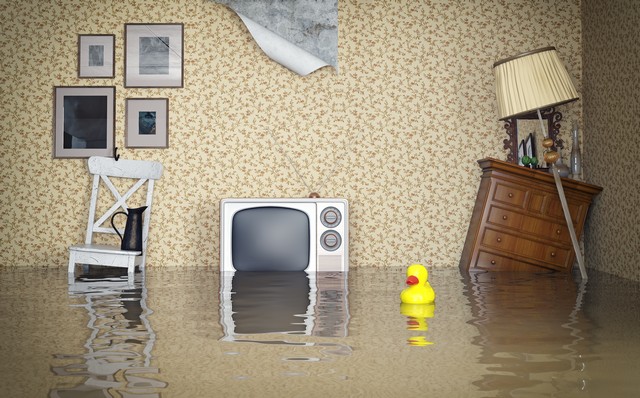
by Eric Brown | Dec 1, 2017 | Flood, Flood Clean Up, Flood Damage Mitigation, Flood Damage Restoration, Flood Damage Restoration Atlanta, Health, Homeowner Tips, How Toxic Is Mold?, Indoor Air Quality, Killing Mold, Mold and Asthma, Mold and Chronic Fatigue Syndrome, Mold and Depression, Mold and Multiple Sclerosis, Mold and Parkinson's Disease, Mold and Sinusitis, Mold Facts, Mold Information, Property Damage Restoration, Questions and Answers, Toxic Mold, Water Damage Cleanup, Water Damage Prevention, Water Damage Restoration, Water Damage Restoration Atlanta
Why Should I Get My Home Or Business Dried Professionally After Water Damage?
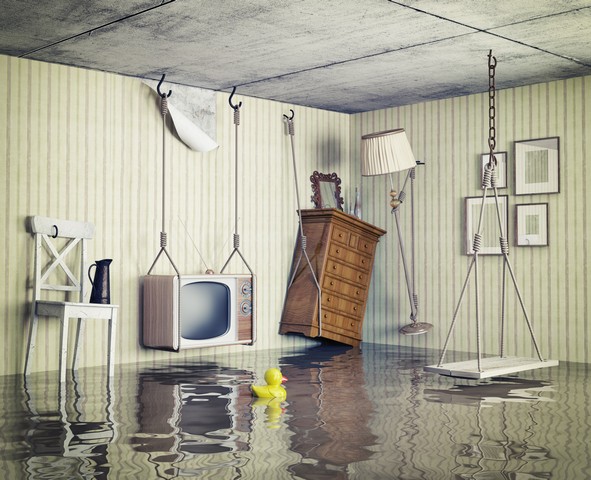
Why Should I Get My Home Or Business Dried Professionally After Water Damage?
One of the services that Mold B Gone specializes in is water damage restoration. We offer this service because the biggest concern that you should have if your home floods or a washing machine hose bursts or one of the pipes burst is mold prevention. Keep in mind, mold will begin growing within 24 to 48 hours, so it is very important that the moisture in your home or business is controlled.
Unfortunately, when people suffer water damage to their properties, they tend to think they can manage the concern themselves using a shop vac and bleach to disinfect.
The temptation to do the job yourself is strong because of the perceived cost savings. However, as this article will explain, there are nine critical reasons you should call a professional to manage the water damage concern in your home or business.
It is not just about saving a few bucks but ensuring that the moisture problems are properly dealt with to avoid future mold concerns.
#1 It May Look Dry, But There Is Still Moisture!
Water always takes the path of least resistance, flowing to the lowest point on your property. Even so, you can’t always know where moisture will hide. Cracks and crevices, cavities in walls and above ceilings, layers of flooring, and all other sorts of places hide water. However, without proper training, without meters to measure the moisture or infra-red cameras, you won’t be able to find all the places water lingers.
This is just another reason to hire Mold B Gone to get your home or business dried professionally because we locate all the hidden water damage – before it becomes a health threat.
#2 Water Weighs Alot!
One gallon of clean water weighs 8.34 pounds.
In a flood damage situation, the hundreds of gallons of water invading your property likely contains contaminants. That makes it even heavier. Once you’ve filled your shop vac with 3-5 gallons of dirty water, you have to get rid of it.
Now imagine lifting and carrying that water-filled bucket weighing 25 to 42 pounds up your basement stairs. Repeatedly!
Don’t risk a back injury just to save a buck, call a professional who has specialized equipment that can remove the water at a much faster speed so that commercial drying equipment and dehumidifiers can be deployed to dry out and remove as much moisture as possible. Again, the major concern of Mold B Gone is to prevent the onset of mold.
#3 Prevent Mold and Bacteria Growth!

Prevent Mold and Bacteria Growth!
The biggest health threat after water damage is mold and bacterial growth.
While your home or business will eventually dry out, moisture left inside the walls or under floors starts to grow mold in as little as 24 hours. And mold can damage your family’s or employee’s health for a very long time.
Mold exposure has been linked to:
- Chronic Fatigue Syndrome
- Asthma
- Sinus Infections
- Parkinson’s Disease
- Multiple Sclerosis
- Depression
So don’t chance it! Prevent mold and bacterial growth in your Atlanta, Georgia region home or business with professional drying.
#4 There Are Contaminants In Flood Water!

There Are Contaminants In Flood Water!
Over the ground flooding from storms carries with it a number of biological contaminants.
Don’t expose yourself to biological contaminants, call a professional that uses proper personal protective equipment.
Keep in mind, even if the water damage did not come from outside, clean water can still contain contaminants if it filtered through building materials.
The only way to determine how many contaminants are in the water is to take a sample and send it to the lab.
#5 We Maximize Your Claim Because We Will Take An Inventory And Photos Of The Contents!
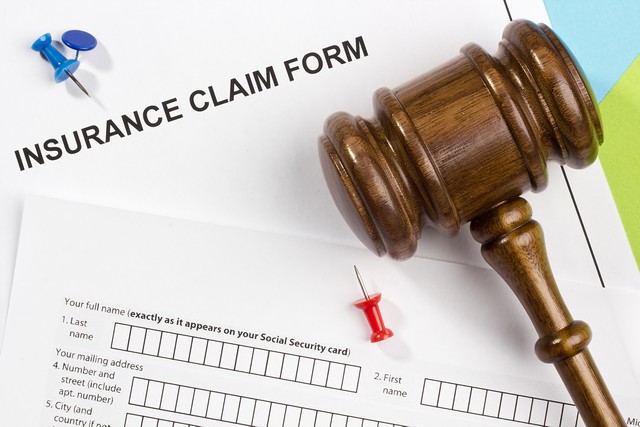
We Maximize Your Claim Because We Will Take An Inventory And Photos Of The Contents!
We separate damaged items into categories of non-salvageable, salvageable, and questionable items. And, if need be, we pack-out and store your precious belongings for you to clean off-site until the water damage restoration is complete. Because we follow the best practices for water damage restoration, we keep costs down and salvage as much as possible.
#6 Mold B Gone Has Years Of Experience!
For most people, flood or water damage is a once-in-a-lifetime event.
Because of that, we know how devastating it is to see your office disrupted or your family’s possessions soaked and scattered.
But we do this work every day. We know how to make a difficult time easier for you. Our professional moisture removal methods work. We can replace do-it-yourself guesswork with our proven experience of years in the business.
#7 Our Goal Is To Save Your Possessions!
Materials and furniture exposed to flood water must be carefully evaluated. If you try to do this on your own, you may discard things that could be saved. Conversely, you may save things that absolutely must be discarded. Part of any professional water damage restoration process is evaluating your possessions. And we explain what’s safe to keep and what you need to discard.
And, for the contaminated items being disposed, we haul it away for you as part of the restoration service!
#8 We Know How To Work With Your Insurance Provider!
We use the latest water damage restoration estimating technology. That means we understand their language, and communicate with them to help resolve your insurance claim fast. If you’re a “do it your selfer,” this might be the best reason to get your property dried professionally.
When water damages homes and businesses, whether it’s from storm damage, over the ground floods, or leaking pipes, the time to act is now!
#9 Mold B Gone Uses Specialized Drying Equipment!
There’s nothing that you can rent from your local hardware store or borrow from your friend down the street that dries out your home or business like the equipment we have.
In a water damage emergency, you need industrial strength fans and dehumidifiers, placed in a very specific pattern for the most efficient drying environment.
Three Key Tips For Choosing A Water Damage Restoration Company!

Three Key Tips For Choosing A Water Damage Restoration Company!
- Look for industry experience and leadership.
- Evaluate their reputation of professionalism and customer service. Ask for referrals!
- Check to make sure you hire a company with certified technicians that have knowledge, training and experience to get your property dry fast.
Hiring a professional is the best thing you can do for your home and your family following a flood!
Have questions? Ready to hire a professional to help with your water damage repair? Contact us today to learn how we can fix up your water damage and get your home or business looking like new again. If you have questions, we’ve provided answers here in our post “15 FAQs About Water Damage Restoration!”.
Peace of mind is just a phone call away!
Remember, Mold B Gone is here to help. We provide water removal and other restoration services! Call us at 470-545-4467.
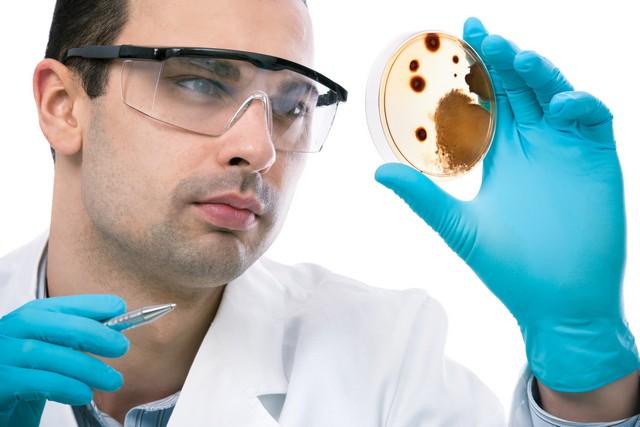
by Eric Brown | Nov 17, 2017 | 37 Symptoms Associated With Mold Illness, black mold removal Atlanta, black mold removal Georgia, Bleach and Mold, Can Black Mold Poison You?, Can Mold Kill?, Chronic Fatigue Syndrome (CFS), Chronic Inflammatory Response Syndrome (CIRS), Commercial Mold Remediation, Commercial Mold Removal, Crawlspace Mold, Dead Mold Spores, Health, Homeowner Tips, How Toxic Is Mold?, Indoor Air Quality, Killing Mold, Mold and Asthma, Mold and Chronic Fatigue Syndrome, Mold and Depression, Mold and Genes, Mold and Infants, Mold and Multiple Sclerosis, Mold and Parkinson's Disease, Mold and Pregnant Women, Mold and Sinusitis, Mold Facts, Mold Information, Mold Remediation, Mold Removal, Mold Sensitized Customer Testimonial, Mold Sensitized Success Story, Questions and Answers, Stachybotrys Black Mold, Toxic Mold
Got Mold & Health Questions? We Provide Answers To The 15 Most Asked Questions!

Got Mold & Health Questions? We Provide Answers To The 15 Most Asked Questions!
Mold B Gone has been helping residents in the Atlanta metropolitan area and surrounding Georgia states with mold removal since 2009.
During this period we have encountered many questions about mold and the impact it can have on health.
Listed below are the top 15 questions we have encountered with links to articles that provide detailed answers.
#1 Why is Stachybotrys Mold A Health Concern?
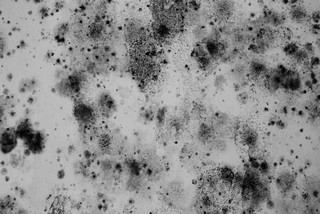
Why is Stachybotrys Mold A Health Concern?
You often hear about black mold in the media. Why is it such a big deal? Can black mold actually make you sick? This article explains why!
#2 Why Do Some People Get Sick From Mold And Others Do Not?

Why Do Some People Get Sick From Mold And Others Do Not?
The challenge mold poses is that it impacts everyone differently. This article explains why!
#3 What Is The Link Between Mold and Chronic Fatigue Syndrome?

What Is The Link Between Mold and Chronic Fatigue Syndrome?
Considering the similarity of symptoms between those suffering from ME/CFS and those suffering from CIRS, it is likely that many individuals diagnosed with ME/CFS may have been exposed to mycotoxins produced by mold growth. Learn more!
#4 Is Mold Sickness A Hidden Epidemic?
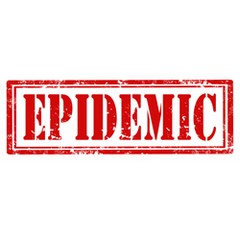
Is Mold Sickness A Hidden Epidemic?
Since so many health professionals are not aware of the health problems mold causes, many mold advocates believe that it is a hidden epidemic. In short, you could be sick from mold and not even know it. Learn more!
#5 Does Mold Cause Sinus Infections?

Does Mold Cause Sinus Infections?
Chronic sinusitis costs the health care system more than 8 billion dollars each year. The cause is most likely mold, meaning most of the treatments prescribed are not effective. Learn more!
#6 Could Some People Diagnosed With Multiple Sclerosis Actually Be Suffering From Mold Sickness?

Could Some People Diagnosed With Multiple Sclerosis Actually Be Suffering From Mold Sickness?
Dr. Rick Sponaugle of the Florida Detox & Wellness Institute strongly believes that environmental factors, such as mold, could be a cause of MS because mold toxins destroy the myelin sheath on brain neurons, causing the classic white spots seen in MS. Learn more!
#7 How Do I Know If Mold Is Making Me Sick?
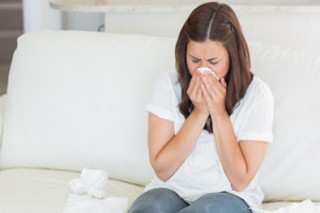
How Do I Know If Mold Is Making Me Sick?
Most people do not even know they are sick because of mold and or suffering from Chronic Inflammatory Response Syndrome (CIRS). Learn more!
#8 Are Dead Mold Spores Harmful?
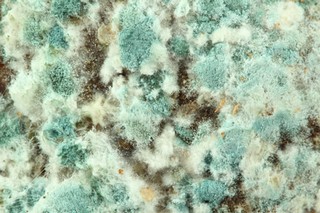
Are Dead Mold Spores Harmful?
There is a lot of bad information on the internet. One of the most prevalent myths is that you can kill mold. This article explains why this is not a good idea and why it can impact your health. Learn more!
#9 Why Does Mold Cause Depression?

Why Does Mold Cause Depression?
Doctor Ackerley believes there is a strong correlation between mold and brain health, particularly depression and suicide. Learn more!
#10 Does Mold Cause Parkinson’s Disease?

Does Mold Cause Parkinson’s Disease?
Recent research suggests that that biologic compounds such as mold have the potential to damage dopamine and cause Parkinson’s symptoms. Learn more!
#11 Why Is Mold A Health Concern?
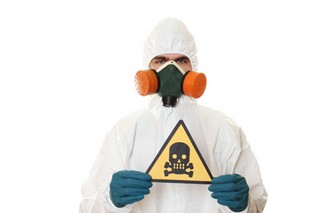
Why Is Mold A Health Concern?
Mold is nature’s recycler meaning it is designed to break down dead, organic material. Now, imagine, what happens when you have mold growing in your home. It is breaking down the material it is feeding on. Since we spend up to 90 percent of our time indoors this creates a situation ripe for health issues. Learn more!
#12 Does Mold Remediation Improve Health?

Does Mold Remediation Improve Health?
Yes, it does, this article cites a case study.
#13 Does Mold Cause Asthma?
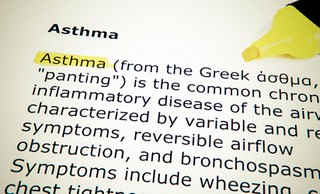
Does Mold Cause Asthma?
Four studies demonstrate a strong link between mold and asthma. Learn more!
#14 Does Mold Affect Pregnant Women and Infants?

Does Mold Affect Pregnant Women and Infants?
This is a difficult topic to research, but there is some evidence that mold could have an impact. Learn more!
#15 Can Mold Poison Me?
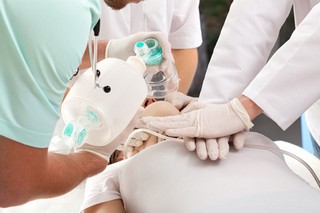
Can Mold Poison Me?
There is evidence that toxins and poisons released by growing mold can harm one’s immune system and cause severe sickness. Learn more!
Got Mold and Health Questions?
If you are concerned about mold and think that it may be impacting your health, please do not hesitate to contact us because we specialize in helping mold sensitized individuals. Our team of professionals looks forward to serving you. Peace of mind is just a phone call away, 678-697-6267!
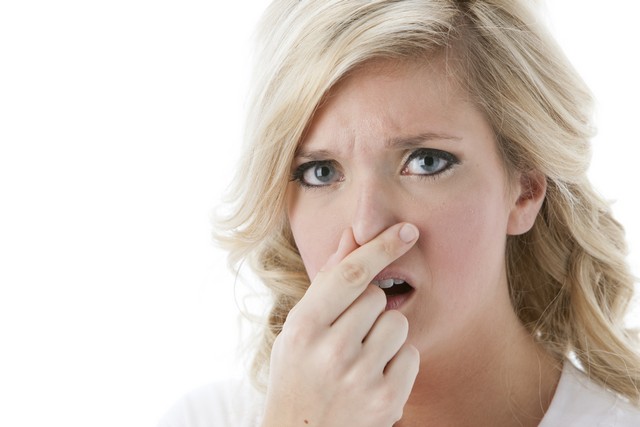
by Eric Brown | Nov 3, 2017 | Basement Mold, black mold removal Atlanta, black mold removal Georgia, Bleach and Mold, Can Mold Kill?, Commercial Mold Remediation, Commercial Mold Removal, Flood, Flood Clean Up, Flood Damage Mitigation, Flood Damage Restoration, Health, Homeowner Tips, Indoor Air Quality, Killing Mold, Mold Facts, Mold Information, Mold Inspection, Mold Remediation, Mold Removal, Property Damage Restoration, Questions and Answers, Toxic Mold
Top 10 Tips To Prevent Basement Mold!
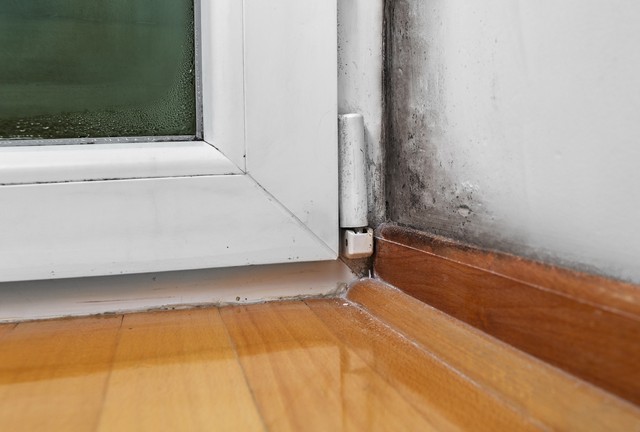
Top 10 Tips To Prevent Basement Mold!
If you’ve started to notice a musty smell in your basement, you may have mold in your home.
Musty odors are sometimes described as earthy and urine like.
Basements have the potential to be dark and damp places.
Add water and moisture to this equation and you have the perfect conditions for mold growth.
The odour you smell is most likely caused by the mold excreting mycotoxins.
Molds will release spores in the air as a defense mechanism to find more moisture and food, contributing to further mold growth.
If you do have mold growth, the key is to contact Mold B Gone to investigate the situation. Mold B Gone has been serving Atlanta, Georgia area consumers and business owners since 2009. Over the years, we have removed mold from many crawl spaces. In addition to crawl space mold removal, the other area of a home that we specialize in is the basement.
This article provides you with ten tips to prevent mold in your basement. These tips are very important if your basement was recently flooded. Implement these tips to avoid future headaches and costly mold removal in the future.
Top 6 Mold Species You Will Find In Your Basement!
The infograpnhic below lists the top 6 mold species that could be growing in your basement.
To determine the species our staff will either gather the spore count in the air using our air quality testing equipment or take swab or tape samples of visible mold. The samples are then sent to an independent lab to verify the species and spore count.
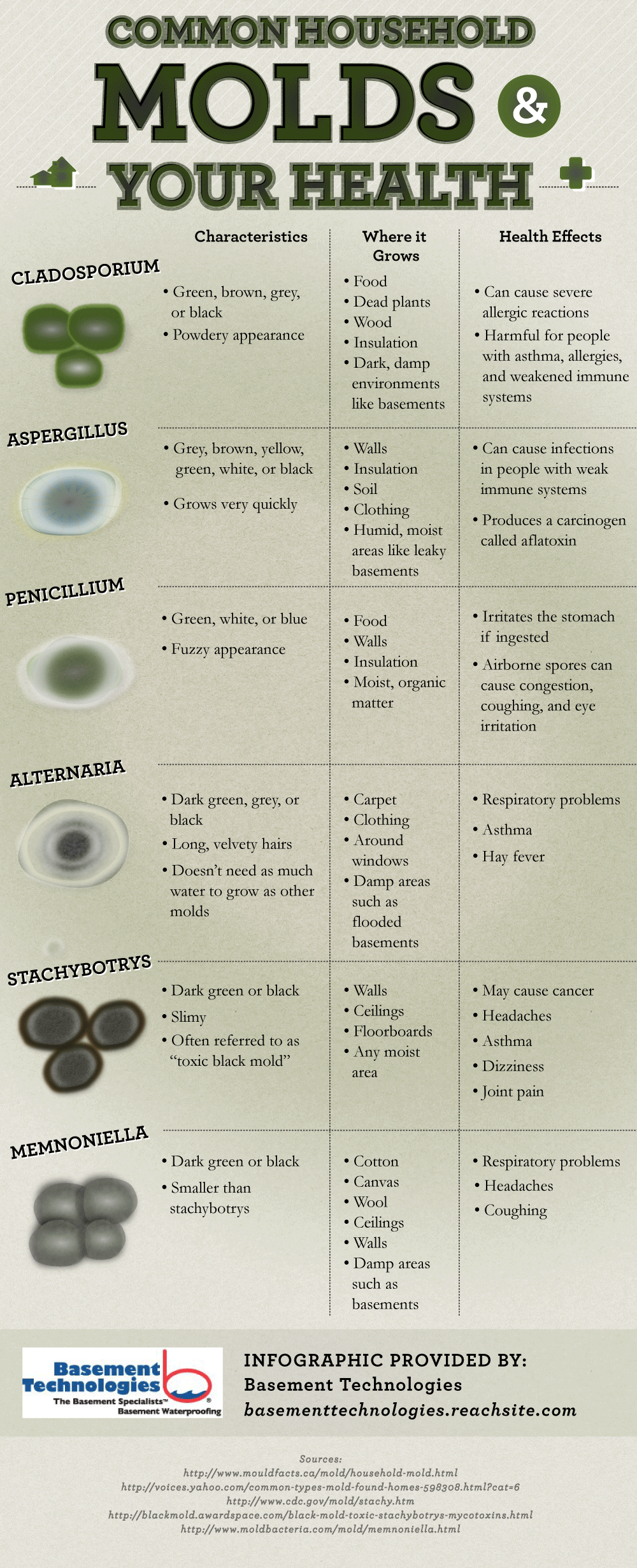
Top 6 Mold Species You Will Find In Your Basement
Ten Tips To Prevent Mold In Your Basement

Top 10 Tips To Prevent Basement Mold!
Fix The Flooding Source!
The first step to preventing future flooding is to determine the cause and fix it. Most basements flood because of backed up drains, leaky pipes, human error (i.e. leaving a tap on), sewer back ups, the lack of a sump pump and/or a malfunctioning sump pump.
Start The Clean Up As Soon As Possible!
The onset of mold will begin within 24 to 48 hours, so it is essential that you begin the clean up immediately.
Hire Experienced Professionals!
If mold is not properly contained and cleaned properly, it can become airborne and contaminate even larger areas of the property.
You need to hire properly trained professionals, like Mold B Gone, who understand how to properly restore a water damaged property and prevent mold growth. Mold growth prevention is important because of the health impact it has and also because mold will impact the structural integrity of the property.
Remove All Wet and Contaminated Materials!
Most insurance companies will not recommend a complete gut for cost savings. Usually they recommend that it is necessary to only remove one foot of drywall above the flood line.
We do not because this could result in long term mold problems because moisture can creep up behind the surface. For this reason, we recommend a complete gut of the basement because the extra short term cost could result in significant long term cost savings.
The last thing you want to happen is for a reconstruction to occur only to find out six months later that you now have a mold problem.
Removal of all the drywall is not our only recommendation. We also suggest the removal of following: all flooring, including the sub-floor; insulation because it absorbs moisture; and finally, if the electrical panel was submerged under water, it should be replaced as well.
Avoid Using Bleach For Clean Up!
As stated by Michael Pinto, CEO of Wonder Makers Environmental:
“Perhaps the most misunderstood aspect of bleach when proposed as a cleaner or sanitizing agent is that its effectiveness is greatly reduced in the presence of organic material. To be a successful sanitizer, bleach must be used on clean materials and surfaces. This is why bleach products are used in the laundry after the wash cycle or in a commercial kitchen as a component in the third sink after the dishes have been washed and rinsed. The efficacy of bleach as a sanitizer is also compromised by heat and light. Despite the fact that the chlorine odor may linger for some time after use, bleach loses strength so quickly that it is not considered to have a residual effect that would prevent future bacterial or fungal growth.”
Do Not Begin Any Rebuild Until the Basement Is Completely Dried Out!
We understand that a flooded basement disrupts your life and you want to resume your normal routine as soon as possible. However, patience is the key.
To avoid any future mold issues that could make you sick, measure the humidity levels and ensure that job was done properly by hiring a third party to perform an indoor air quality test.
In addition, if the flood water was category 3, we recommend that swab tests be performed to ensure that the cleaning process was done effectively.
Only after it is verified that the basement is completely dry and sanitized and clearance testing verifies that the indoor air quality is healthy should the basement rebuild begin.
Properly Insulate Your Basement!
According to Mike Holmes, a respected contractor, insulation is one of the most important factors in preventing basement mold:
“When air, which is full of moisture, leaks into that insulation, it will inevitably lead to mould. Here’s why: Your basement, like every room in your home, has its own natural air convection. The air nearest the ceiling is warmer, and the air nearer the floor is cooler. The cold air at the bottom pushes the warm air up. As it rises, it comes into contact with the cooler exterior wall and releases the moisture it’s holding. It condensates. That air and moisture — if it’s able to get into the batt insulation through a gap in the seal — will wick into the insulation. Over time, it will soak that batt to the point that water can drip down the walls and pool on to the floor….You need a thermal break to stop hot from meeting cold….So, use closed cell spray foam insulation or rigid foam insulation, which will provide a thermal break and not trap any moisture. If you’re using foam insulation boards, make sure you Tuck Tape every seam, and spray-foam all corners and joints to create a 100% seal and a perfect thermal break. That way, you’ll know that anything you do inside your finished basement won’t have to be torn out in a few years because of mould.”
Cross-Ventilate!
If possible, open the windows on all sides of your basement in the evenings when the air is cooler to create a cross-ventilation air flow which will prevent excessive moisture and also ensure that a steady stream of fresh air is circulating throughout the basement.
Ensure Water Drains Away From Your Home’s Foundation!
One of the most effective ways to prevent water intrusion is to ensure that water is not sloping towards the foundation of your home but away from it. This is particularly important if your basement walls are porous and can trap moisture, which can lead to mold. To avoid this, ensure that the ground slopes away from the foundation walls of the home and your downspouts extend at least 6 feet away from the property.
Invest In A Dehumidifier!
To prevent excess moisture in your home, use a dehumidifier and consider waterproofing your basement by sealing cracks in the floor and walls with hydraulic cement and a concrete waterproofing sealer where the floor meets the walls.
Got Basement Mold Questions?

Got Basement Mold Questions?
Call 678-697-6267, or contact us via e-mail.
We specialize in mold detection and mold removal and have helped 1000s of customers because we understand why mold grows and follow an 8 step procedure to ensure that the cause of the mold problem is fixed before we remove the mold.Our ultimate goal is to ensure that mold does not grow back, which we back with our guarantee on our services. We look forward to serving you! 🙂
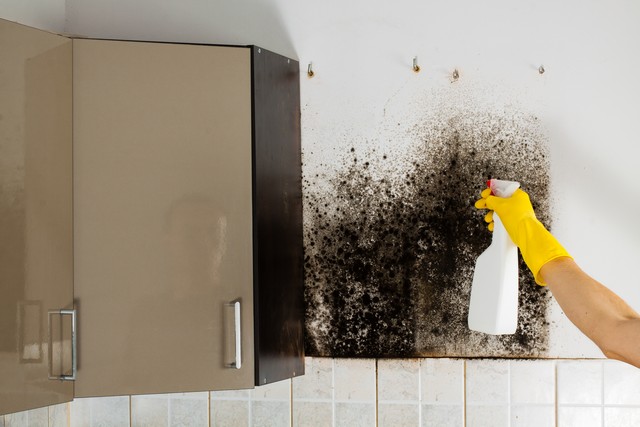
by Eric Brown | Oct 6, 2017 | black mold removal Atlanta, black mold removal Georgia, Bleach and Mold, Can Mold Kill?, Commercial Mold Remediation, Commercial Mold Removal, Dead Mold Spores, Health, Homeowner Tips, How Toxic Is Mold?, Indoor Air Quality, Killing Mold, Mold Facts, Mold Information, Mold Inspection, Mold Remediation, Mold Removal, Mold Removal Cost, Stachybotrys Black Mold, Toxic Mold
How Qualified Is Your Mold Removal Contractor?
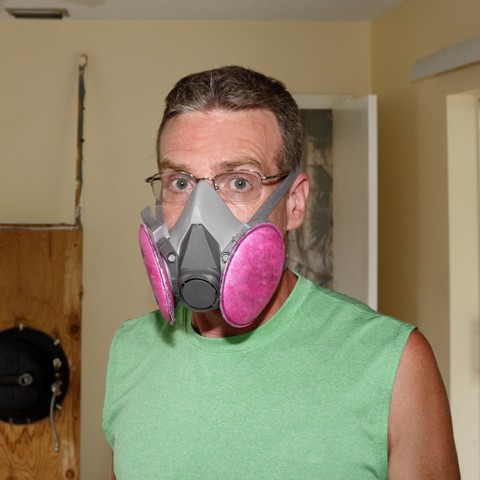
How Qualified Is Your Mold Removal Contractor?
One of the goals of Mold B Gone is to help customers in the Atlanta, Georgia area with their indoor air quality needs. We specialize in mold removal and are considered one of the best companies in our area for mold remediation.
The core problem with this industry is the fact that there is not much regulation, which means that any contractor can offer mold inspection or mold removal services.
Some states require licensing, which is great, but if you live in an area without licensing requirements, this can create an atmosphere where unskilled, inexperienced, and untrained contractors can offer mold removal services.
This creates a situation where a simple mold problem could be made worse because the contractor did not know what they were doing.
So, how do you know if the contractor you call is qualified to remove mold from your home or business?
The purpose of this article is to list and explain the top 10 clues that the mold removal contractor you called may not have the training or experience to properly remediate your mold problem.
#1: The Contractor Concludes You Have Mold Without Providing A Valid Explanation Or Investigation Further!
Really? How does the contractor know? You know there is a problem if the contractor claims you have mold without doing any testing of the area.
#2: The Contractor Fails To Explain How They Will Test For Evidence Of Mold!
Since there are many different kinds of tests, you need someone who uses the right kind of test to assess whether you have a problem.
Tape testing, swab testing, air quality, and ERMI testing are some tests that are used to determine if you have a mold problem. Make sure that you work with a qualified mold inspection specialist who understands how to test whether or not you have a mold problem so that a proper protocol can be put in place.
This is important! Without the right kind of test, at the end of the job, you won’t know if the mold problem was properly rectified.
#3: The Contractor Does Not Want Their Work To Be Verified By A Third Party!
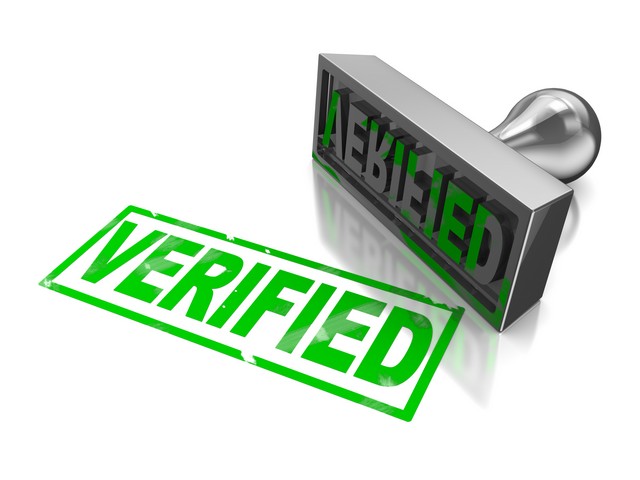
#3: The Contractor Does Not Want Their Work To Be Verified By A Third Party!
If you begin working with a contractor and they do testing and find mold, make sure you ask them how the quality of their work will be verified.
We recommend that you get a Pre-Test and a Post-Test. The purpose of the Pre-Test is to measure the spore count inside of the property and compare it to outdoor levels. This is done using specialized equipment that takes samples of both the indoor and outdoor air. The samples are then sent to an accredited laboratory to be analyzed. The lab will then issue a report documenting the spore count and the mold species that is found in both the indoor and outdoor samples. Once this data is determined, the contractor should explain to you what mold spores were found in your home or business and how it compares to the outside. If there is a huge difference and the spore count indoors is higher than outdoors, then you will have some pertinent information to compare to the Post-Test once the work is complete.
The purpose of the Post-Test is to do the same as the Pre-Test. In this case, however, the spore count indoors should be close to or equal to the outdoor spore count. If the data shows this, then the indoor fungal ecology of the home is healthy. The Post-Test, in short, verifies that the mold remediation was successful.
When you decide to work with a contractor make sure you understand what they will do to restore the fungal ecology of your home to healthy levels. Reputable contractors will provide you with the lab results of the Pre and Post tests and will offer you the option of using a Third Party to do the Post Test should you choose to do this.
Pre and Post testing is like a check and balance system, meaning someone else is checking the efficacy of the work. Without this test, you will never know if the mold removal was successful.
To summarize, here are the three key reasons you should invest in Pre and Post testing:
- So you know if you have a problem that actually needs remediation. Testing will verify this!
- So that you know at the end of the job a clearance test tells you if you got what you paid for. A lot of times mold damage is clearly evident, so it’s okay to waive the first test. However, the final clearance test provides protection from mold scams and peace of mind that your home or business is safe.
- Finally, because it’s part of the IICRC recommended standard for mold removal!
#4: The Contractor Gives You A Price Quote Without Doing A Formal Site Inspection!
Believe it or not, some contractors will give you a quote over the phone without even visiting your home or business.
If you get a price over the phone, definitely stay away from this contractor for two key reasons:
- One of the goals of reputable mold removal contractors is to identify the moisture source that is causing the problem. How can a contractor provide a quote without knowing this?
- Most importantly, how can a quote be provided unless an actual site visit and inspection is done to know the full extent of the mold damage.
#5: The Contractor Refuses To Provide Evidence Of Training!
Before you commit to working with any mold removal contractor, always ask if they have specialized training. Mold removal is considered a profession because professionals invest in specific training through organizations like the IICRC, RIA, CMRS, etc. Always find out about the training and experience. In fact, in a previous blog, we listed 10 questions you should always ask to pre-screen prospective contractors you want to hire.
#6: The Contractor Does Not Provide You With A Detailed Estimate!

#6: The Contractor Does Not Provide You With A Detailed Estimate!
You should never work with a contractor that gives you a one line estimate that simply states “mold removal” and then the “price”. Demand a detailed written estimate so you know exactly what you are paying for.
If you don’t demand a detailed estimate you may face other charges when the contractor shows up to do the job. Some contractors provide minimal detail in the estimate because they want to up-sell or up-charge you for other work.
There are some cases when unforeseen issues on a property present themselves after a job starts. But a detailed written estimate before you sign the contract outlines what will be done on the basis of a professional assessment. The estimate and contract protects both the contractor and the property owner because it clearly states the limitations (i.e., what will and won’t be done) before the work starts.
#7: The Contractor Wants 100% Of Payment Before The Job Starts!
If you are comfortable with the contractor and have properly pre-screened and done your due diligence and have a signed contract, you may be asked for a deposit to cover some of the costs for doing your mold removal job.
However, if the contractor asks for 100% of the payment up front, you may want to re-consider hiring this contractor because you will have very little recourse if the job is not done right.
We recommend that the final payment be made once all the work, according to the signed contract, is complete and you have a successful Post-Clearance test that assures you that the job was done properly and the indoor air of your home or business is healthy.
#8: The Contractor Gives You An Unbelievable Low Price!
Mold removal can be costly because professionals follow detailed steps to ensure that it is done properly and to avoid contaminating other areas of your property.
If you get three estimates and one estimate is a lot lower than the others, keep in mind that “you get what you pay for”. In short, the cheapest price is not the best indicator of competent service. Rather, it usually indicates the reverse.
#9: The Contractor Attempts To Pressure You Into Making A Decision Using Scare Tactics!
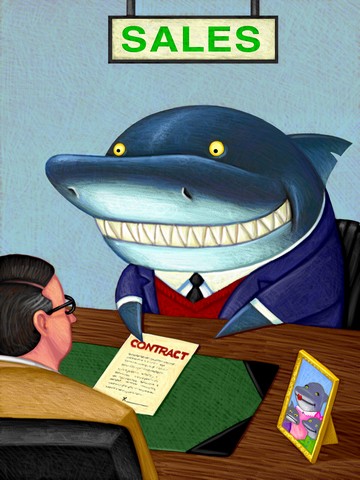
#9: The Contractor Attempts To Pressure You Into Making A Decision Using Scare Tactics!
Finding mold in your home or business can be scary. Because of this, some contractors behave like predators, using scare tactics to close the sale on their next potential victim.
The key point to remember if you find mold is not to panic or get to stressed out. Stay focussed on finding the best trained contractor to deal with your mold concerns.
It is important to understand that we are surrounded by mold all the time because it is in our environment and part of the eco-system to break down dead organic material. Mold is nature’s recycler and will always be a problem when it is growing indoors because the spore counts will increase to unhealthy levels.
If you suspect you have mold and contact a contractor, be sure to ensure that you get all the information in order to make a sound decision! This is very important; if you do have mold, you want to ensure that it is removed the right way the first time by a mold removal professional who knows what they are doing.
If you are pressured into making a quick decision and not encouraged to seek other estimates or given time to do your due diligence, then be careful, particularly, if in order to close the sale, the contractor resorts to pressure tactics or scare tactics.
Any contractor that uses pressure or scare tactics without providing you with evidence from testing and/or does not try to determine the cause of your mold problem may just be trying to pressure you into a quick sale.
#10: The Contractor Recommends Bleach!
Avoid mold removal contractors that recommend the use of bleach for your mold removal job. Bleach does not work and is not recommended by experienced industry professionals.
We do not recommend bleach for three key reasons:
- Bleach does not address the cause of the mold problem!
- Bleach is dangerous!
- Bleach evaporates!
For an in depth explanation why we do not recommend bleach, read this article: Killing Mold Is Not The Answer!.
Now that you understand some of the tactics used by unqualified or unscrupulous contractors to try to get business, let’s look at the five key steps you can take to protect yourself…
How To Choose A Professional Mold Removal Contractor?

How To Choose A Professional Mold Removal Contractor?
The best way to ensure that you choose an experienced professional is to ask questions and educate yourself!
- Find out what training the contractor has received and from what organization.
- Ask if the contractor recommends Pre and Post testing.
- Get a detailed mold removal action plan, often referred to as the Scope of Work. The report will guide the remediation activities of the mold damage restoration.
- Once you have that indoor air quality test result, get a written, detailed estimate describing the mold damage restoration project.
- Finally, it’s a good idea to get 3 different bids from 3 different contractors. This way you’ll know the price range for the project. If you get an extremely low bid, make sure you compare apples to apples. If a price seems too good to be true, it usually is. The risk of a low bid is that proper attention to detail won’t be followed. Proper attention to detail includes things like creating containment and following proper procedures for removing contaminated materials from the property. These two steps prevent contamination to the rest of the property.
One final point. Mold will only grow if there is moisture, ie. a water source. The key to long lasting mold prevention is to first identify the source of moisture. With this in mind, make sure you hire a contractor who will do this before any mold remediation activities begin. If the source of the moisture isn’t identified and corrected any mold removal activities will be wasted effort.
Got Mold Removal Questions?

Got Mold Removal Questions?
Mold B Gone, is dedicated to helping homeowners and business owners in the Atlanta, Georgia area. One of the reasons we are so passionate about education is we know that an informed consumer will be able to make better and informed decisions. We have built a reputation of trust in our service area because of our focus on education and our guarantee.
When you have questions about mold removal, don’t hesitate to send us an e-mail or call our experts at 678-697-6267. Peace of mind is just a phone call away!















































